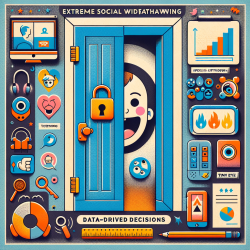Introduction
In recent years, the importance of mental health literacy in schools has gained significant attention worldwide. A study titled "Towards school-based mental health programs in Nigeria: the immediate impact of a depression-literacy program among school-going adolescents and their teachers" provides compelling evidence on how school-based programs can enhance depression literacy among students and teachers. This blog aims to explore the outcomes of this research and provide insights on how practitioners can implement these findings to improve mental health outcomes in educational settings.
The Study at a Glance
The research was conducted in South-West Nigeria, involving 3,098 students and 294 teachers from 21 schools. The study utilized an adapted version of the "Break Free from Depression" curriculum, a 4-module program designed to increase awareness and understanding of depression among adolescents and their educators.
The results were promising, showing significant improvements in knowledge, attitude, and confidence regarding depression among students and teachers. The effect was most pronounced in the knowledge domain, with a medium effect size, while improvements in attitude were less significant among teachers.
Key Findings and Implications
- Knowledge Gains: Both students and teachers showed significant improvements in their understanding of depression. This highlights the importance of educational interventions in enhancing mental health literacy.
- Attitudinal Shifts: While students exhibited positive changes in attitude, the same was not statistically significant for teachers. This suggests a need for more targeted interventions for educators to address attitudinal barriers.
- Confidence Building: Participants reported increased confidence in handling depression-related issues, indicating that the program effectively empowered them to seek help or support peers.
Actionable Insights for Practitioners
For practitioners looking to implement similar programs, the following strategies may enhance effectiveness:
- Customization: Tailor the program content to reflect local cultural contexts and languages, as was done in the study to improve relevance and engagement.
- Involve Educators: Since teachers play a crucial role in shaping student attitudes, incorporating comprehensive training for educators is essential for the program's success.
- Peer-Led Initiatives: Encourage peer-led programs to leverage the enthusiasm and relatability among students, which can enhance the program's reach and impact.
Encouraging Further Research
The study underscores the potential of school-based mental health programs in improving depression literacy. However, further research is needed to explore long-term impacts, scalability, and the integration of such programs into existing curricula. Practitioners are encouraged to contribute to this growing field by conducting studies that assess the effectiveness of similar interventions in different cultural and educational settings.
To read the original research paper, please follow this link: Towards school-based mental health programs in Nigeria: the immediate impact of a depression-literacy program among school-going adolescents and their teachers.









